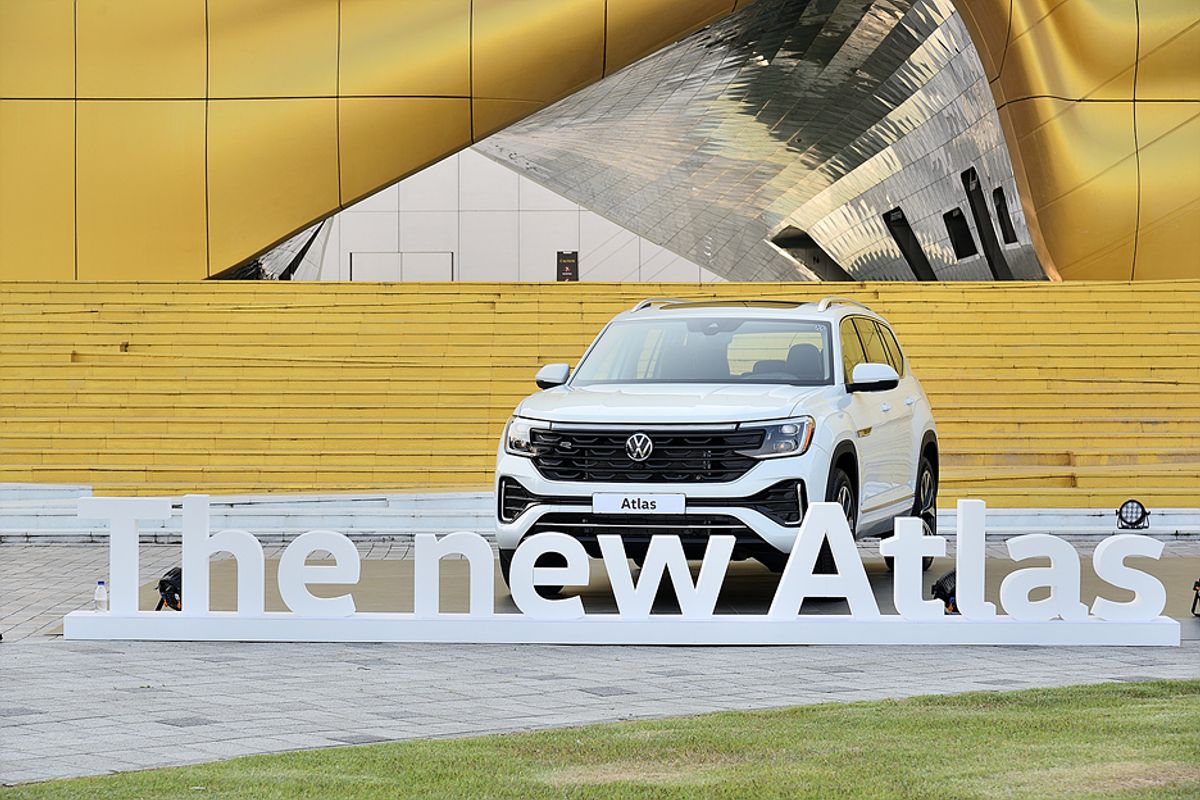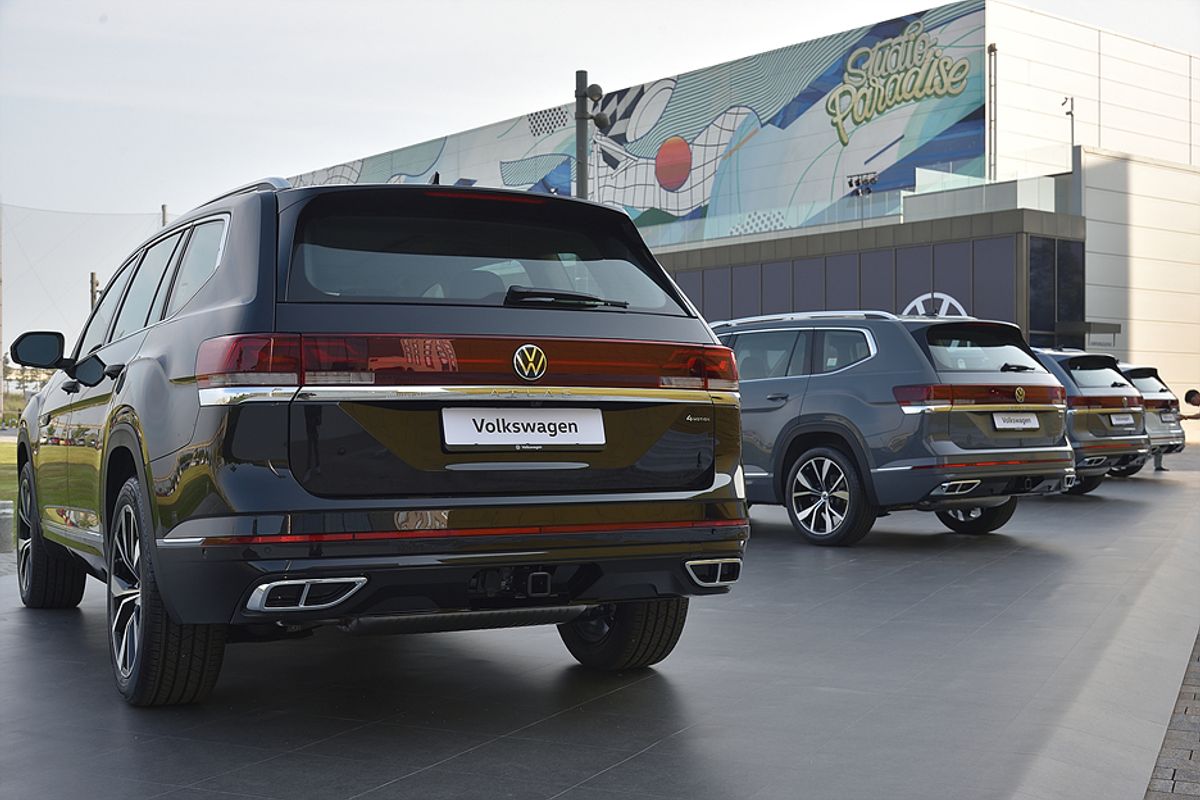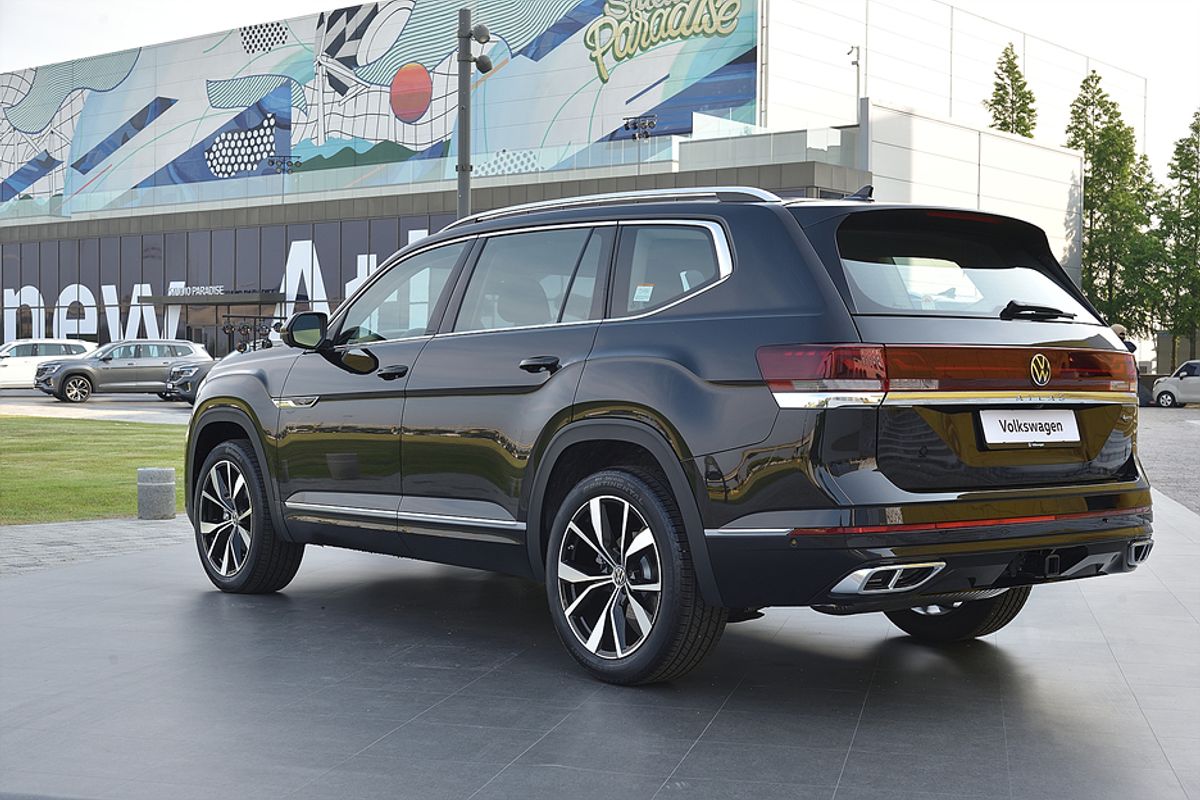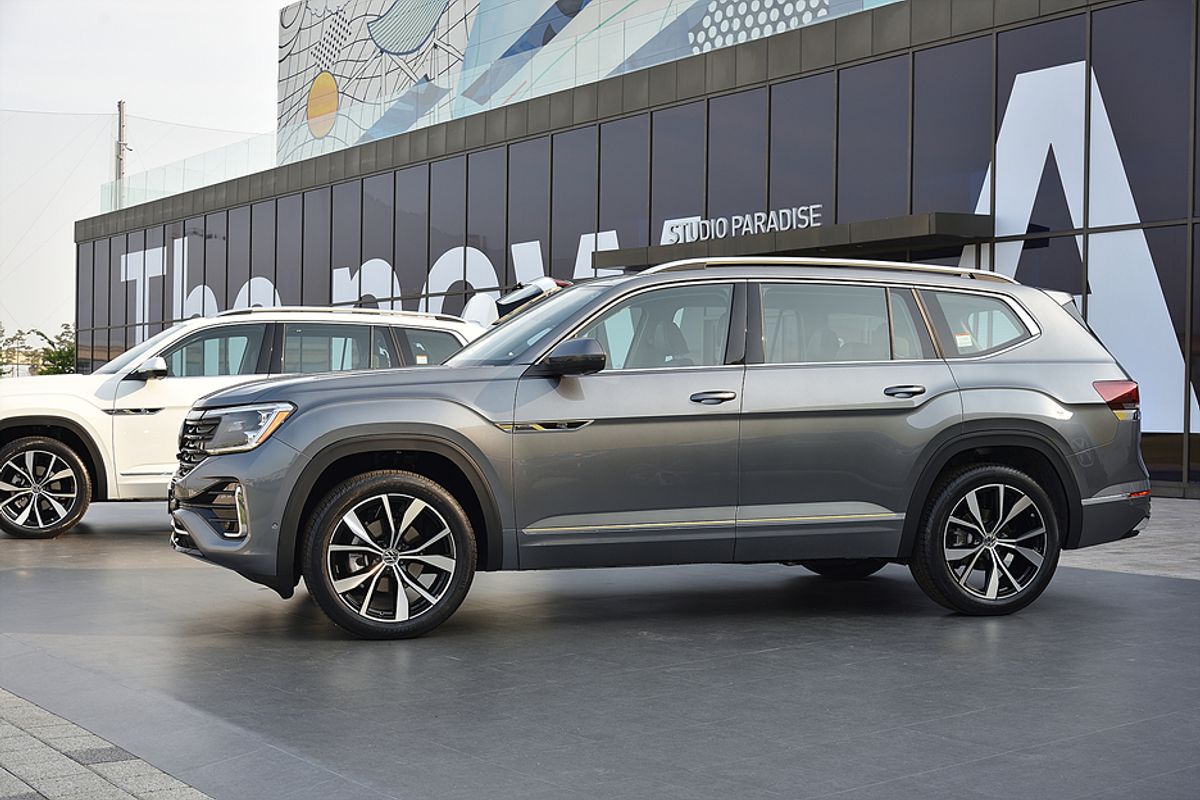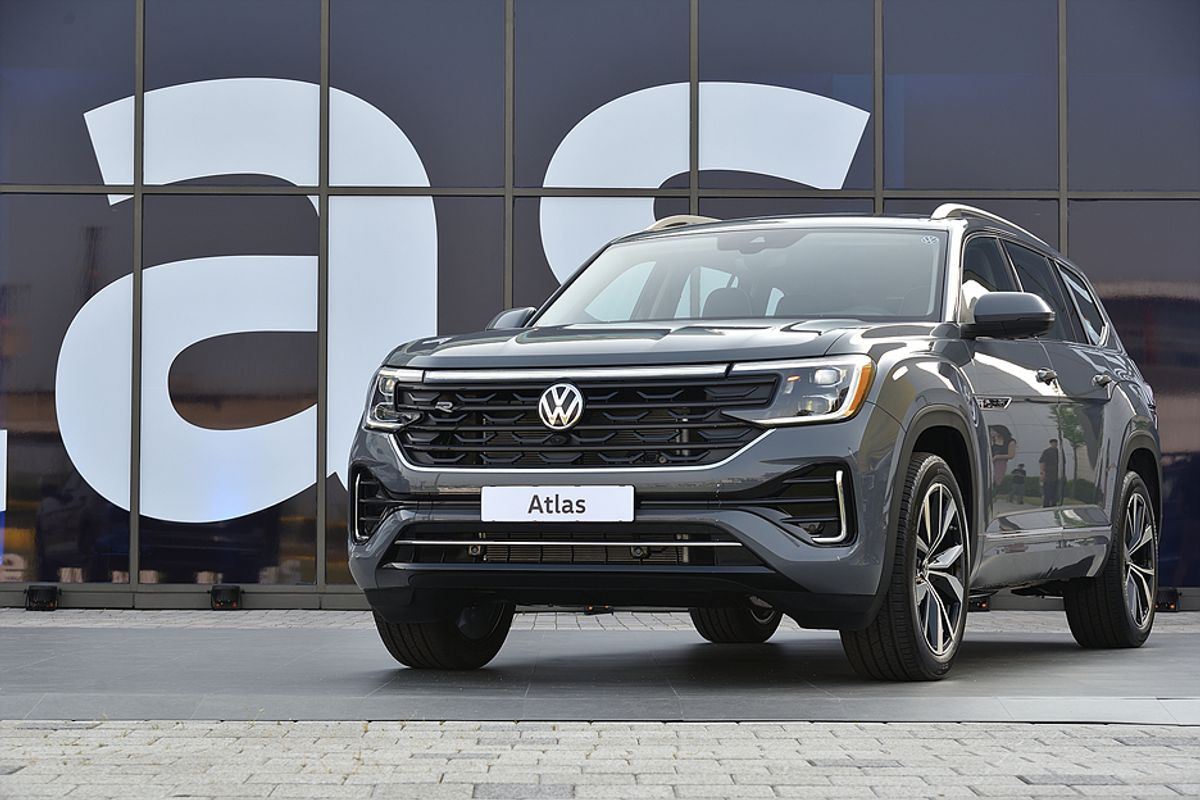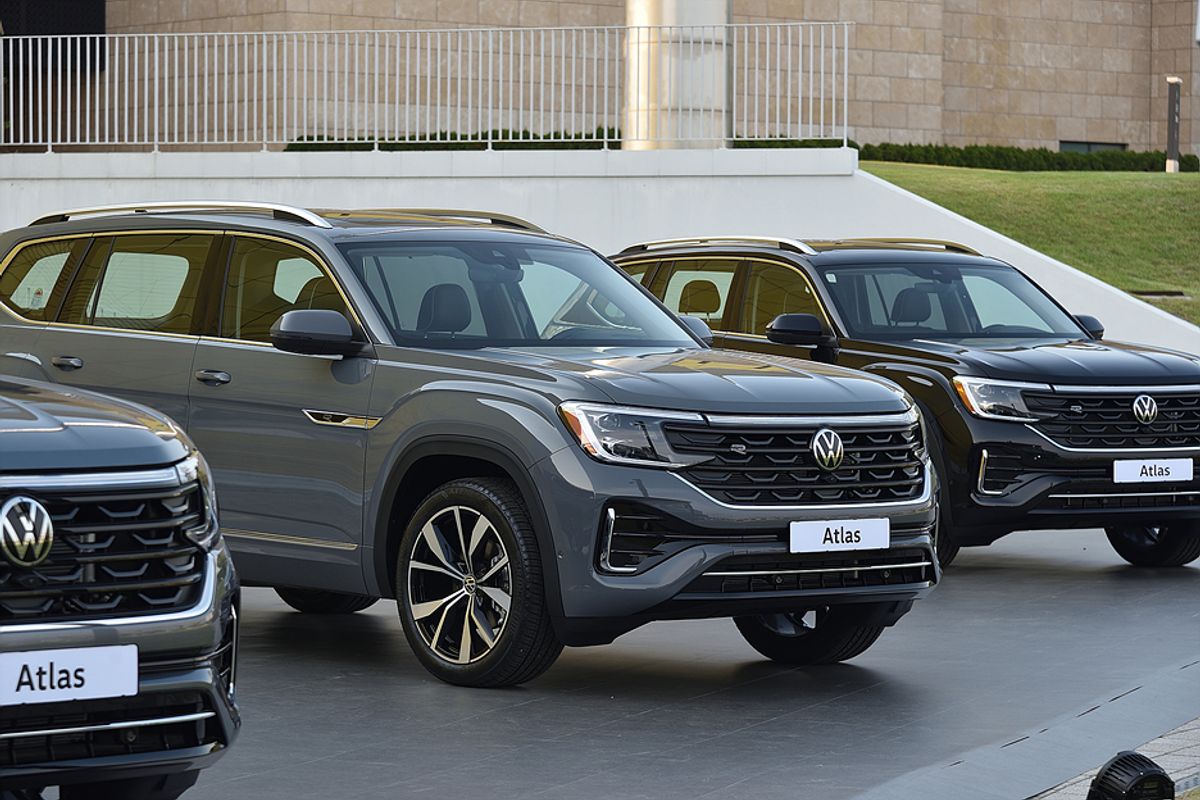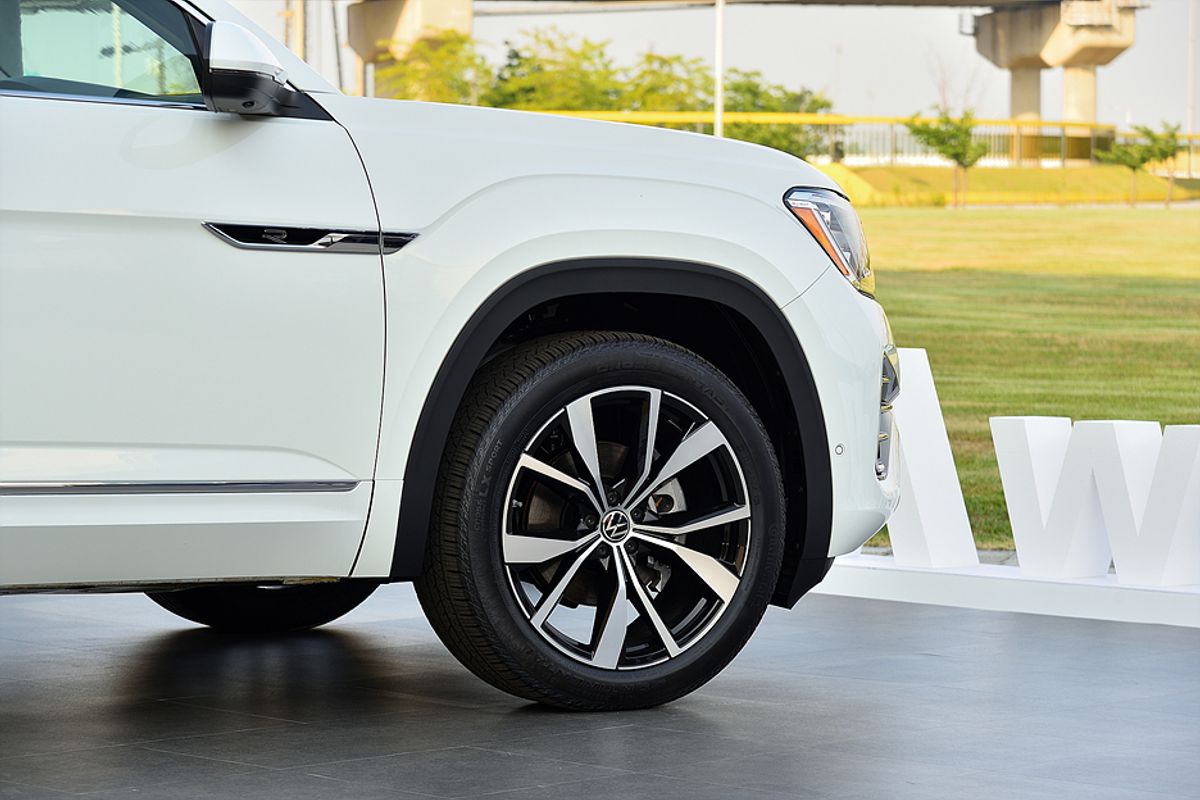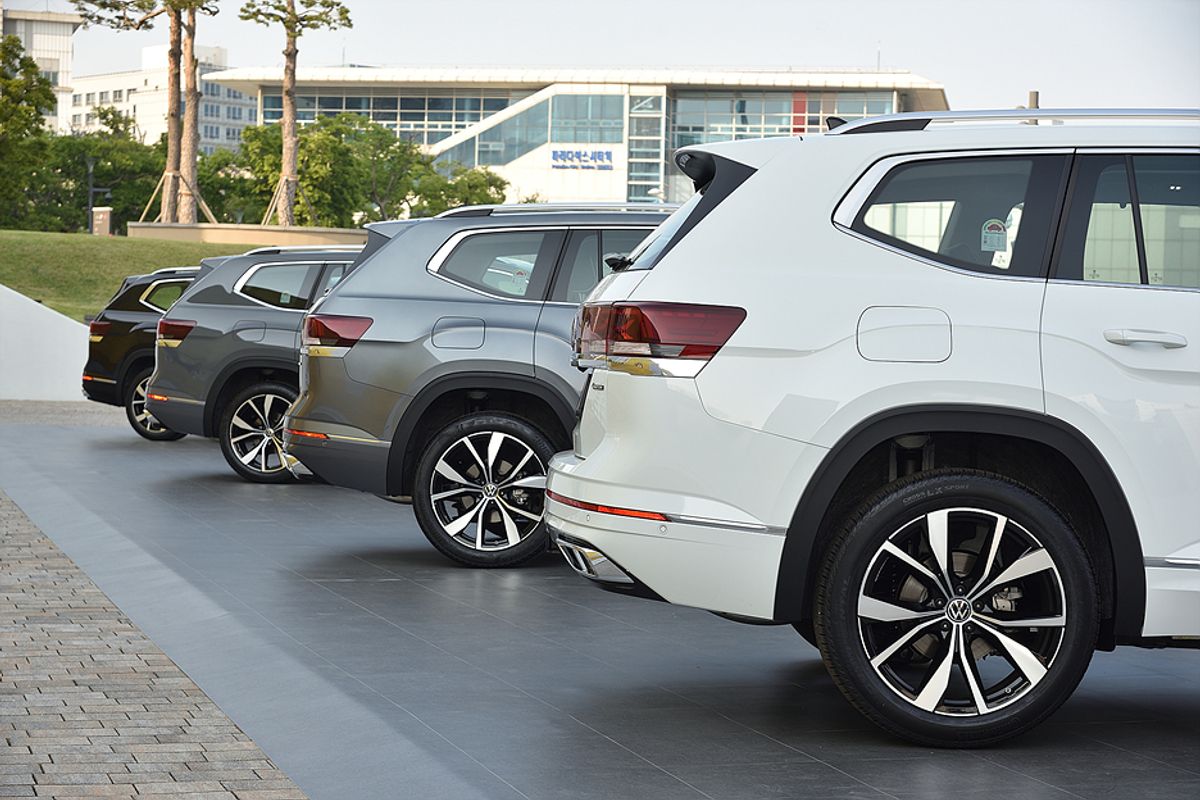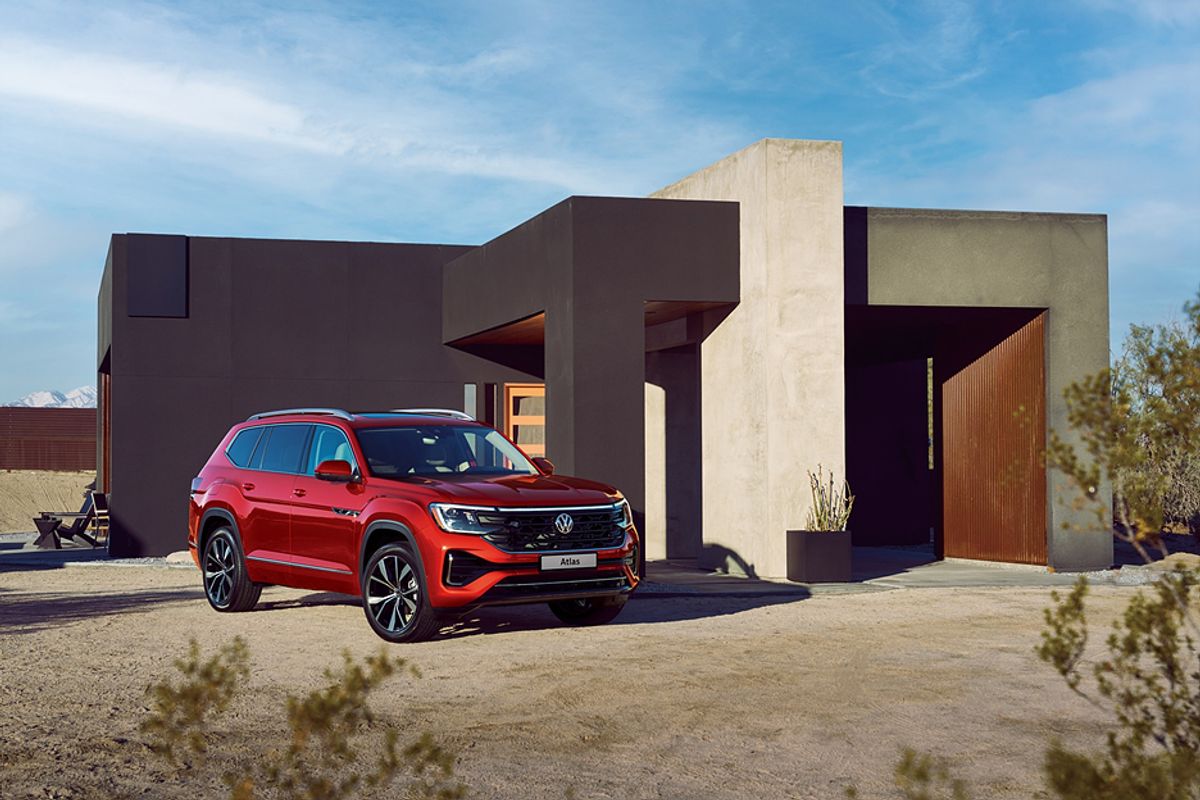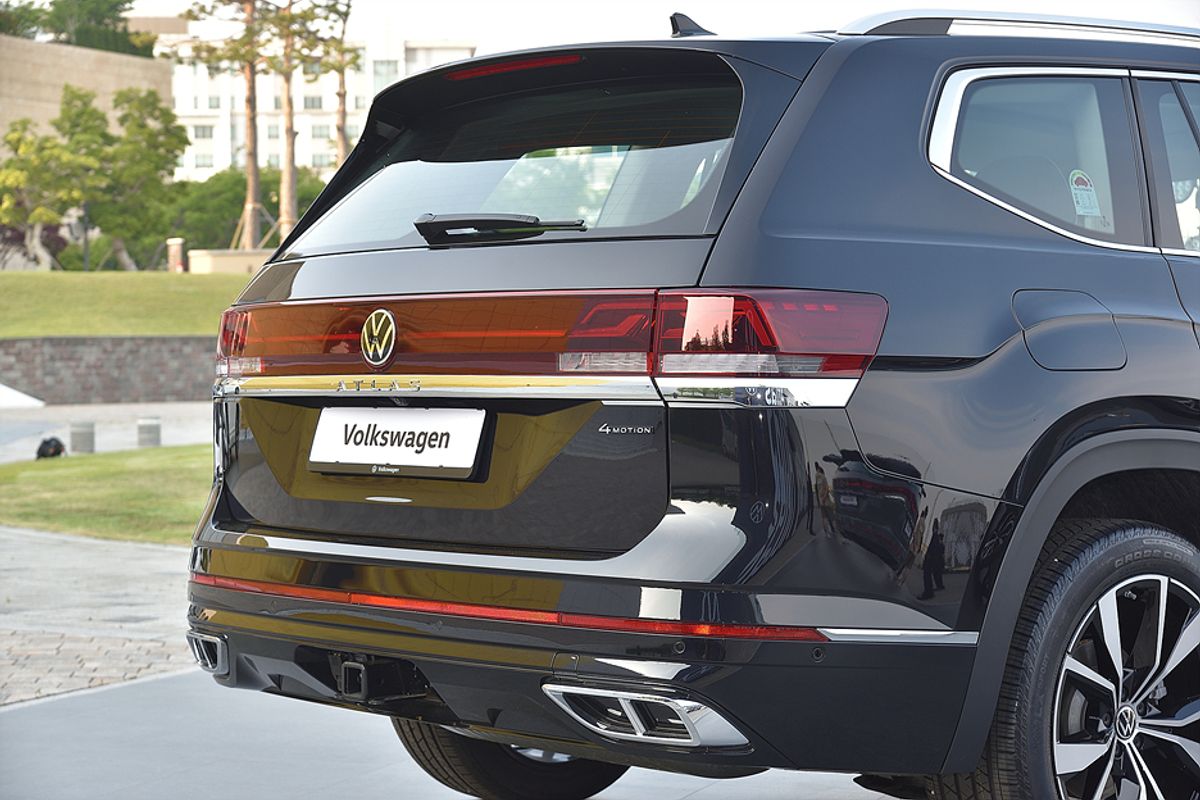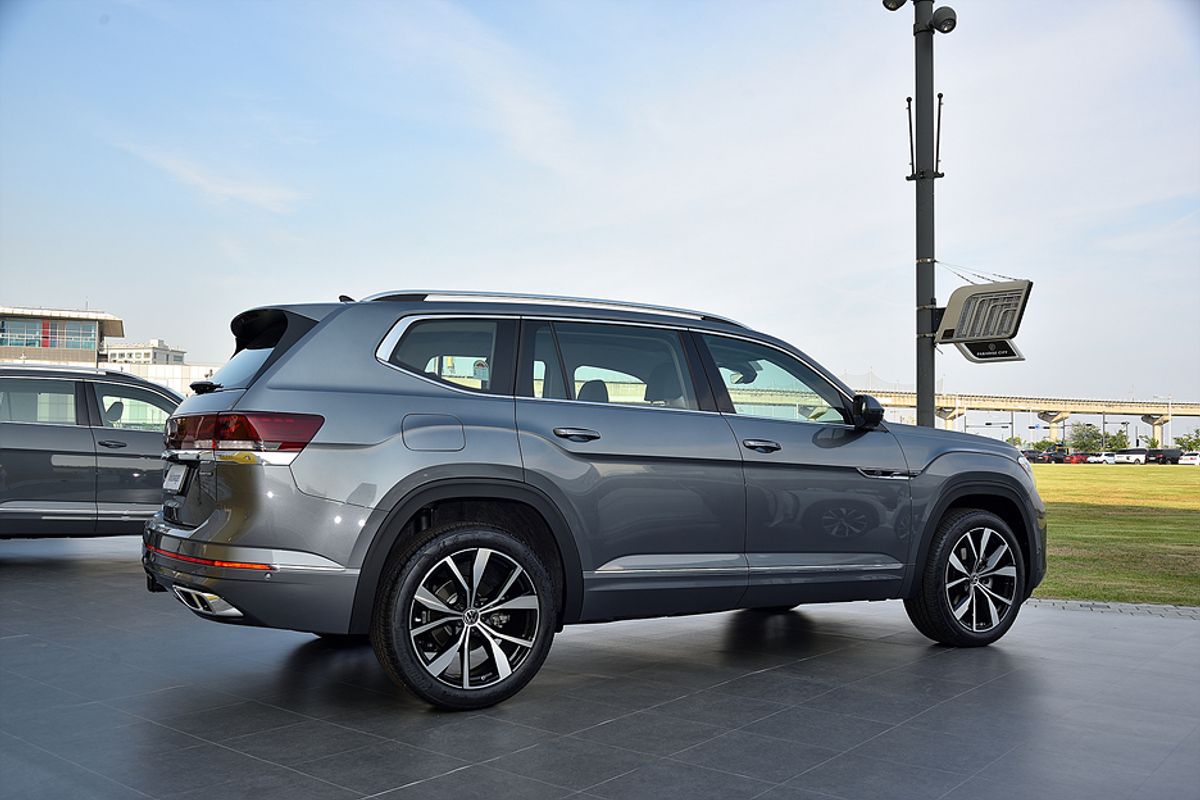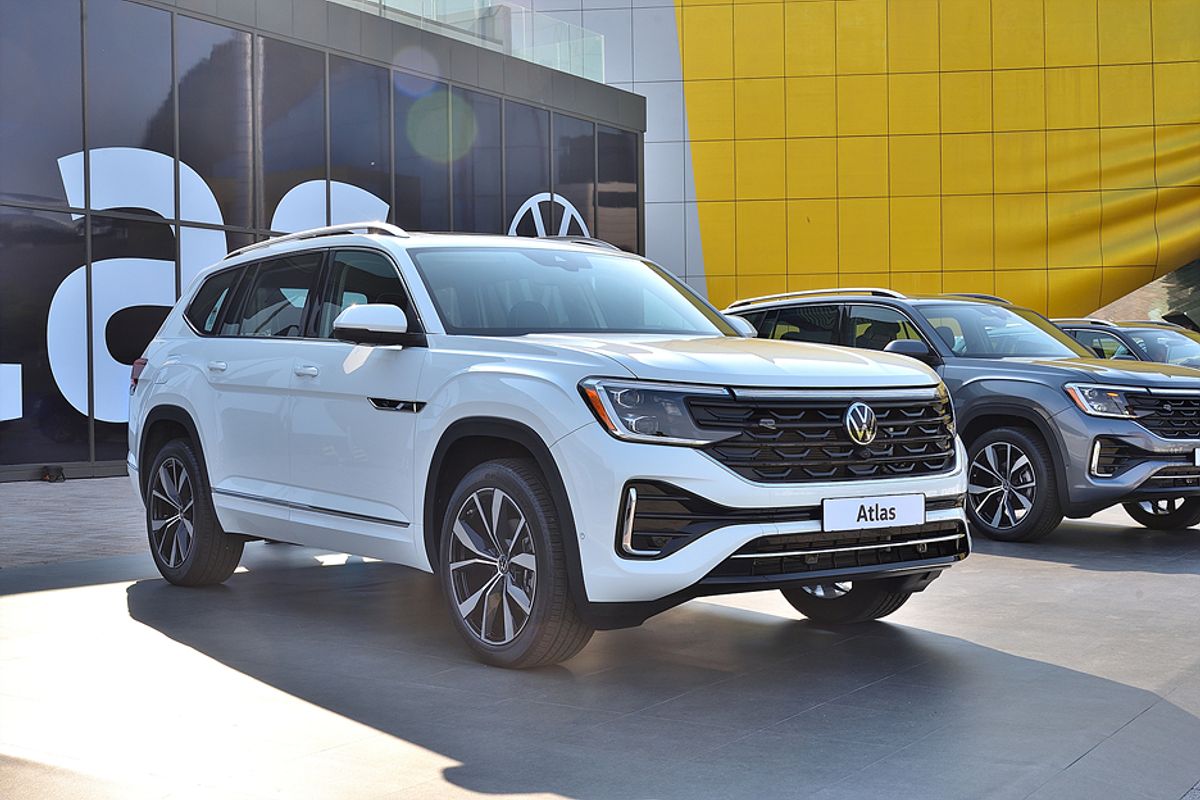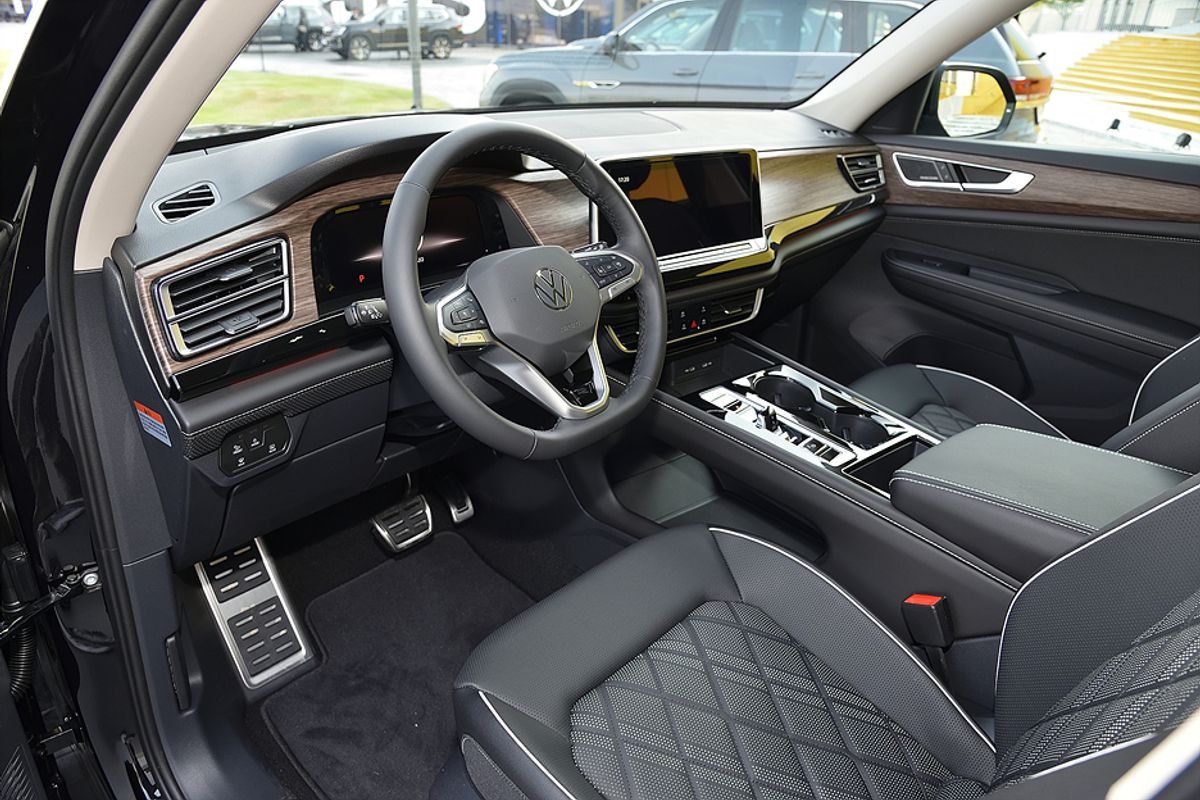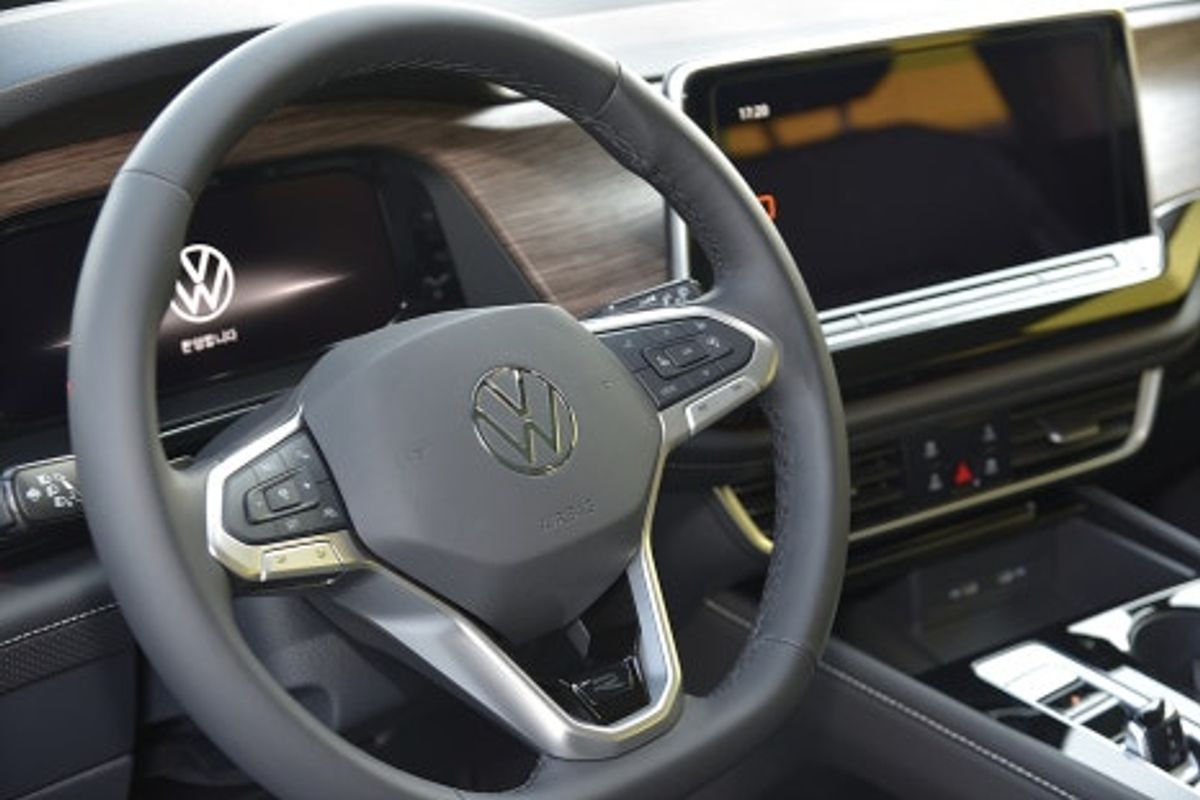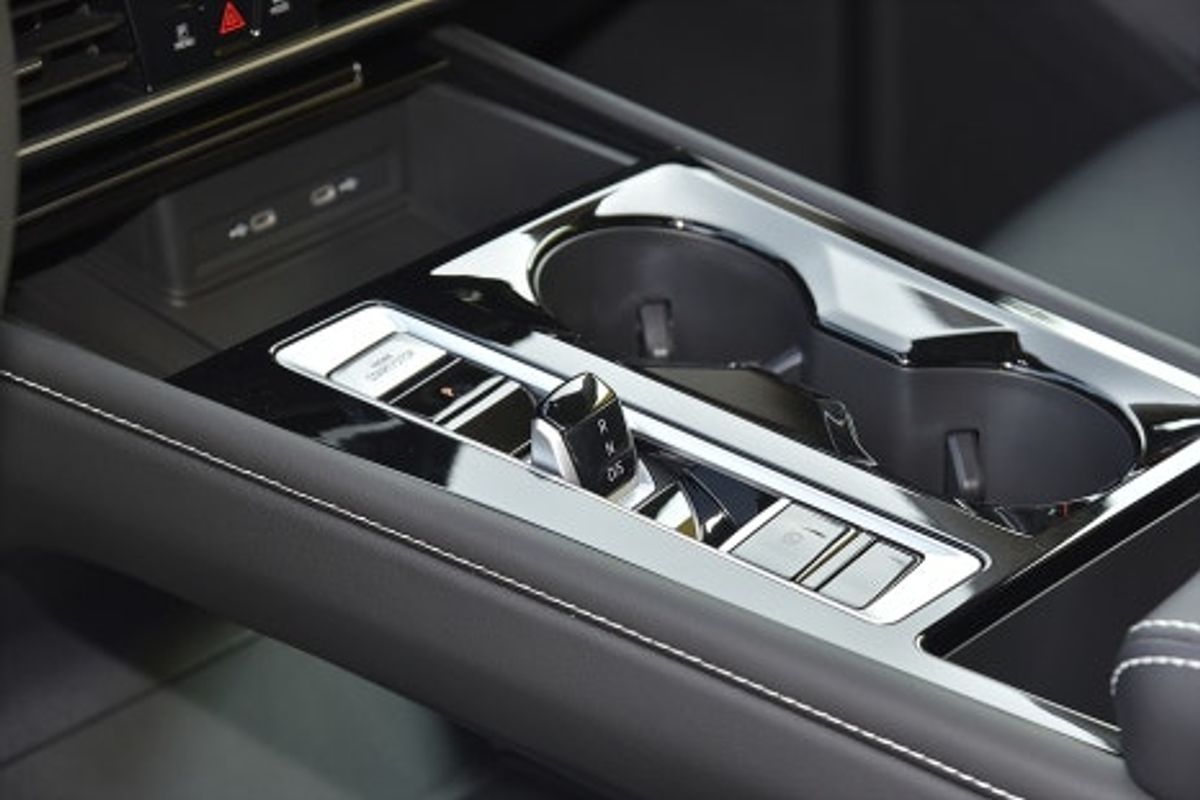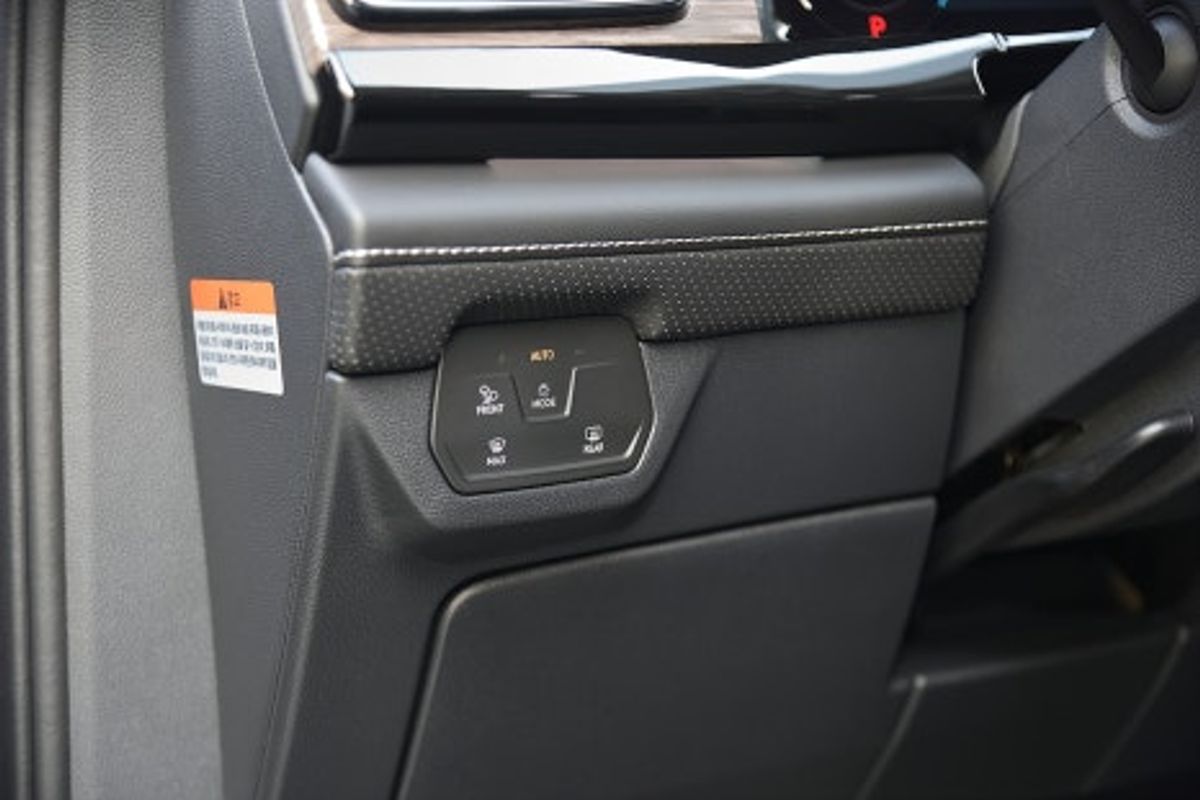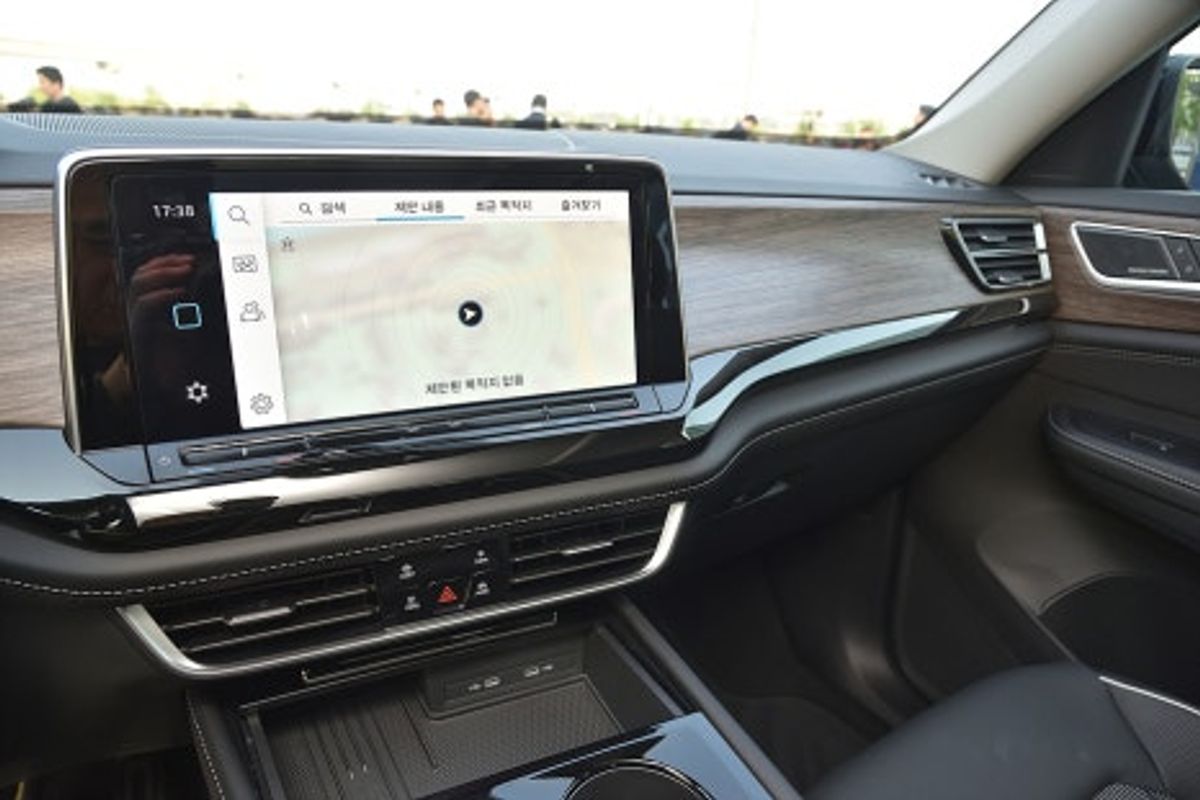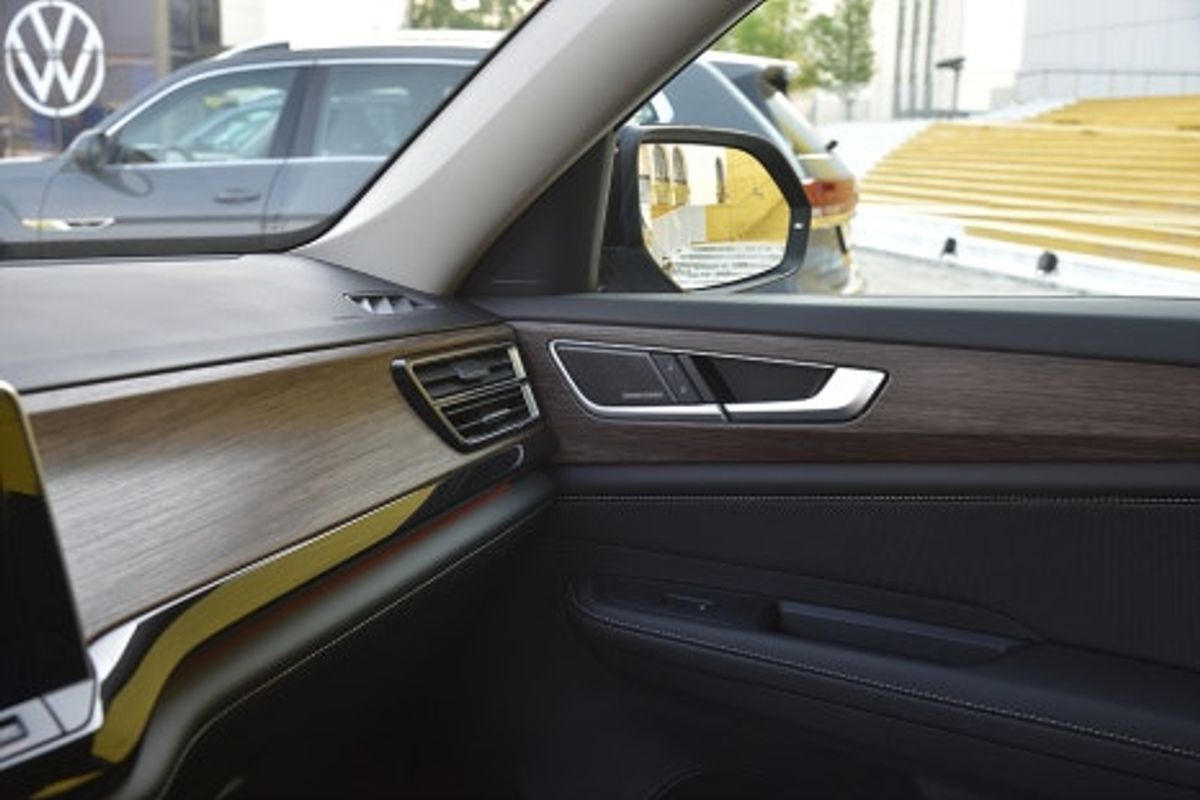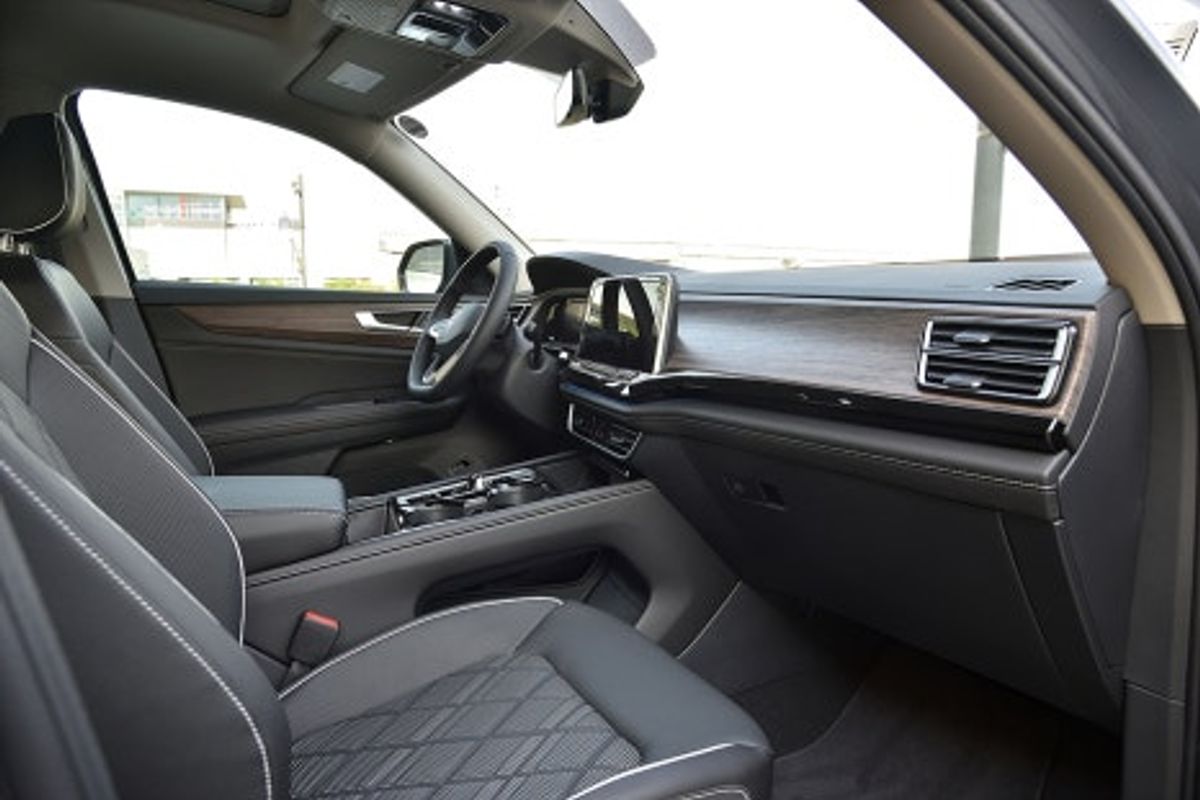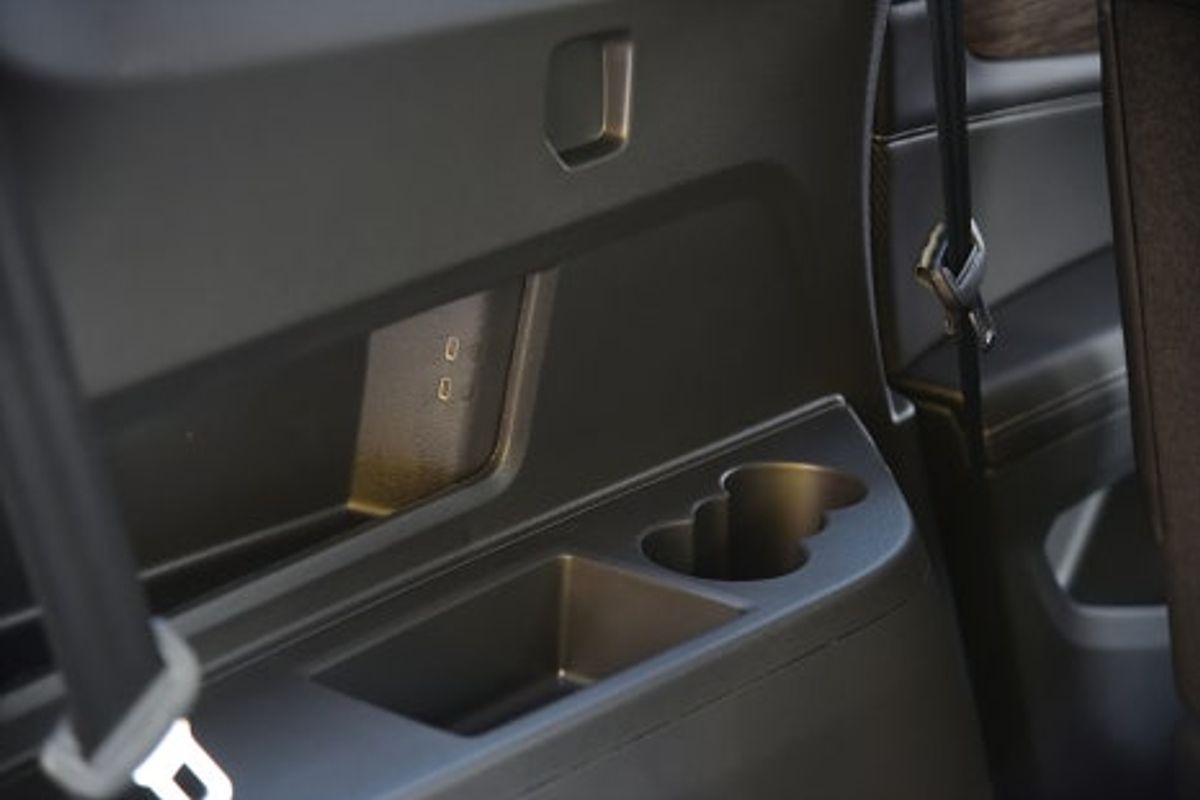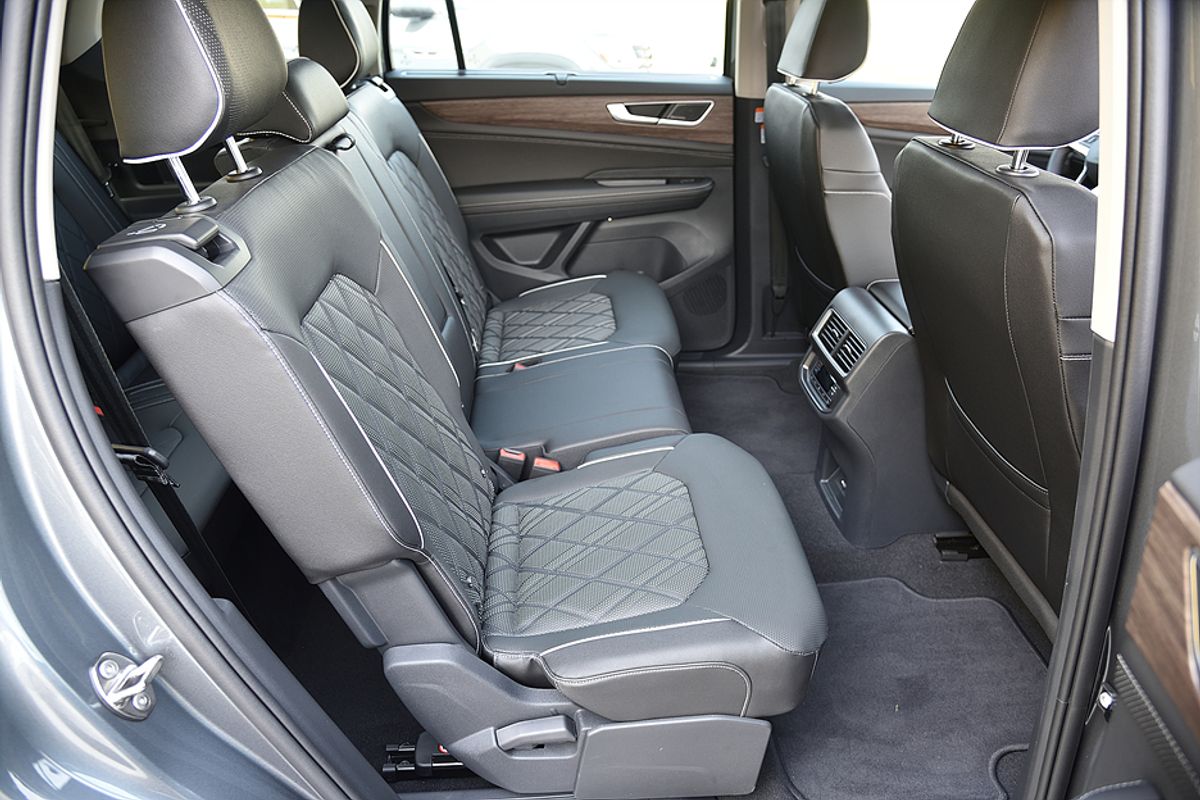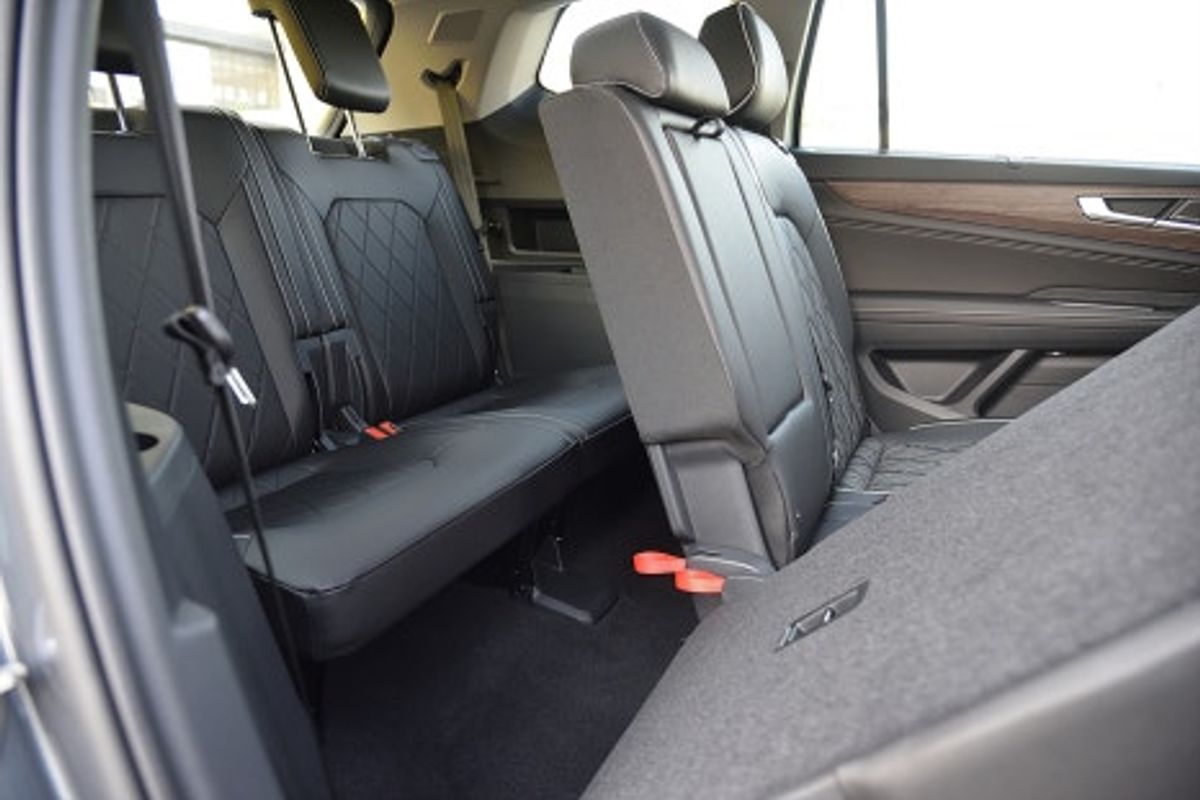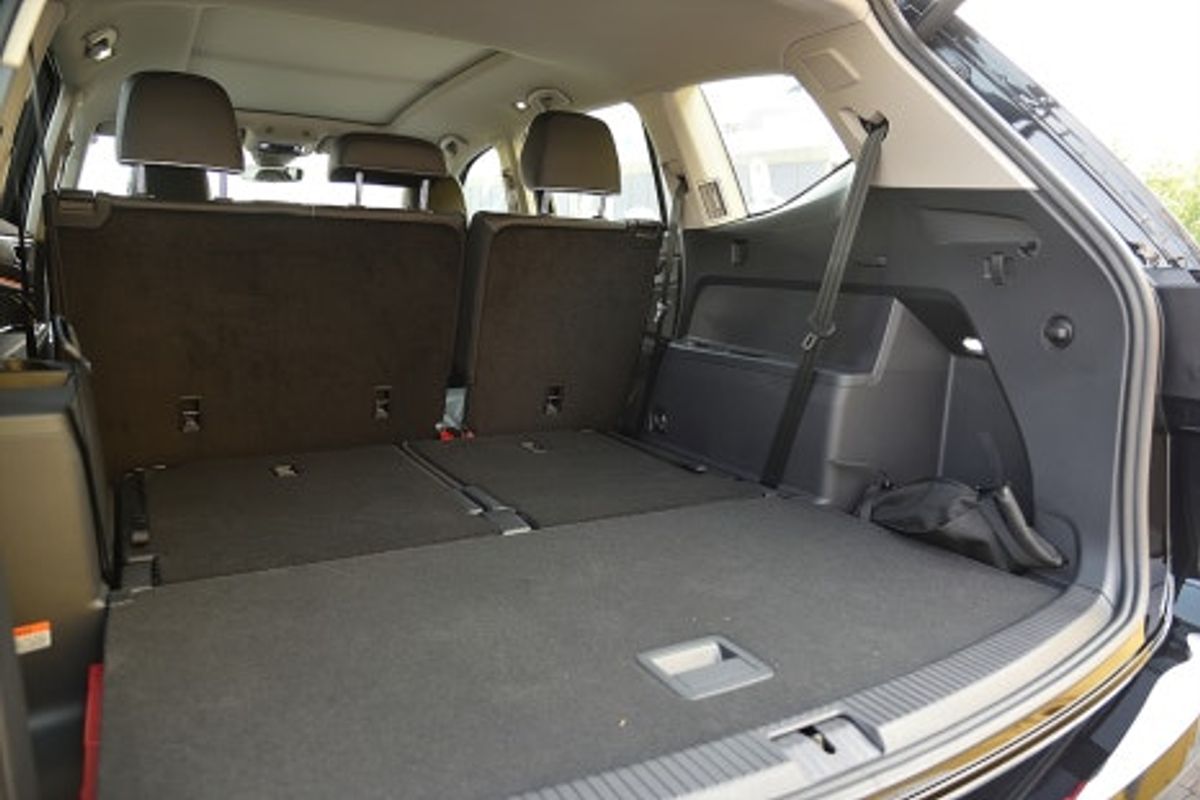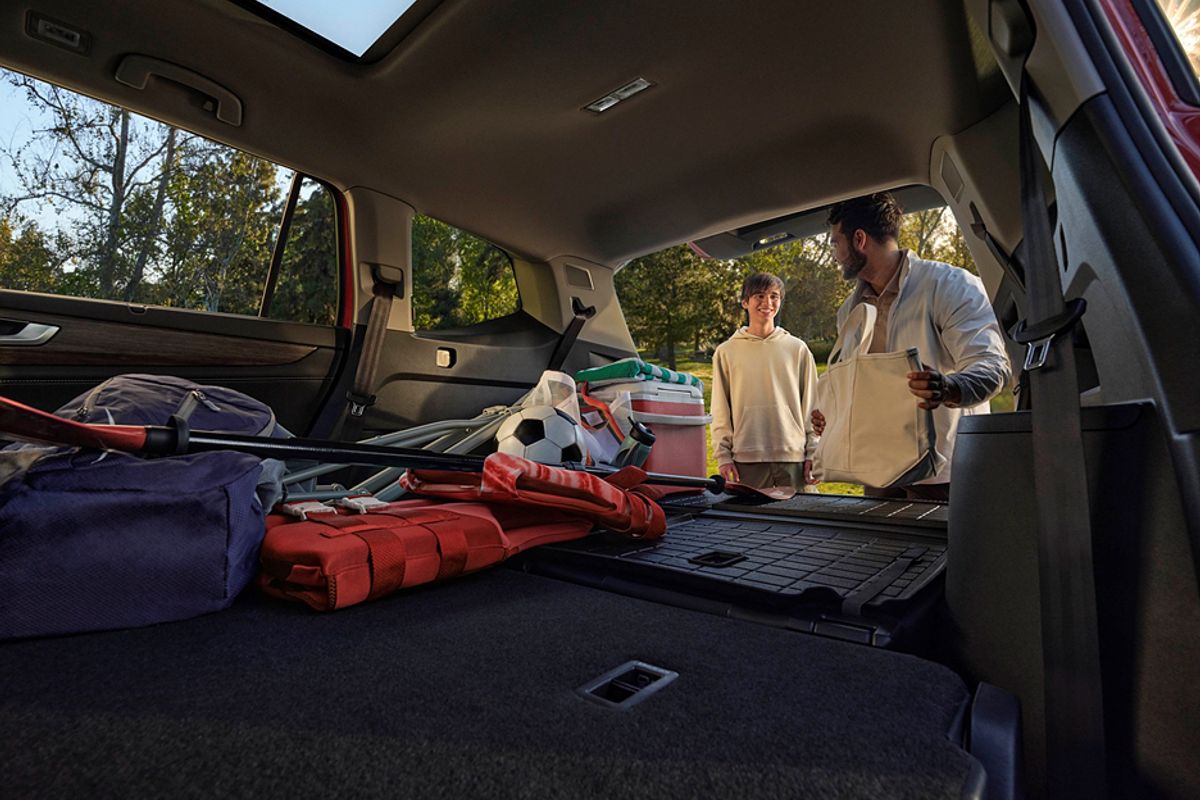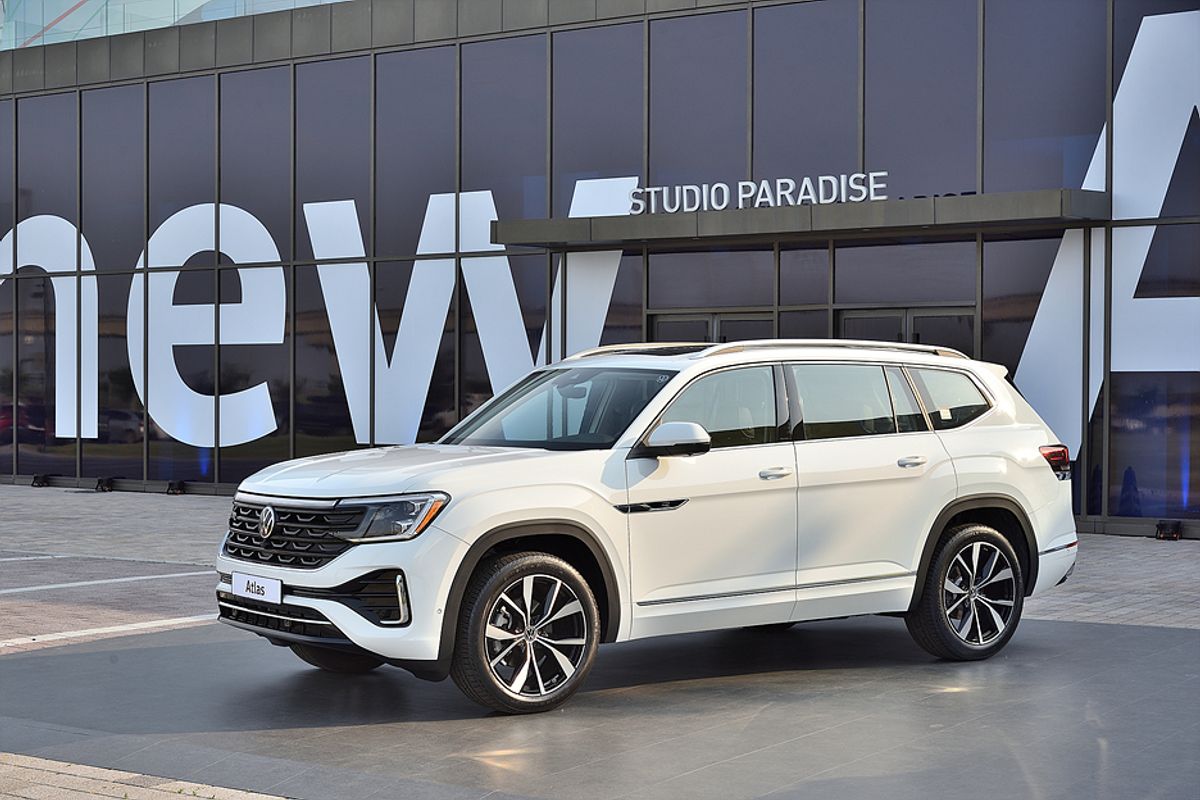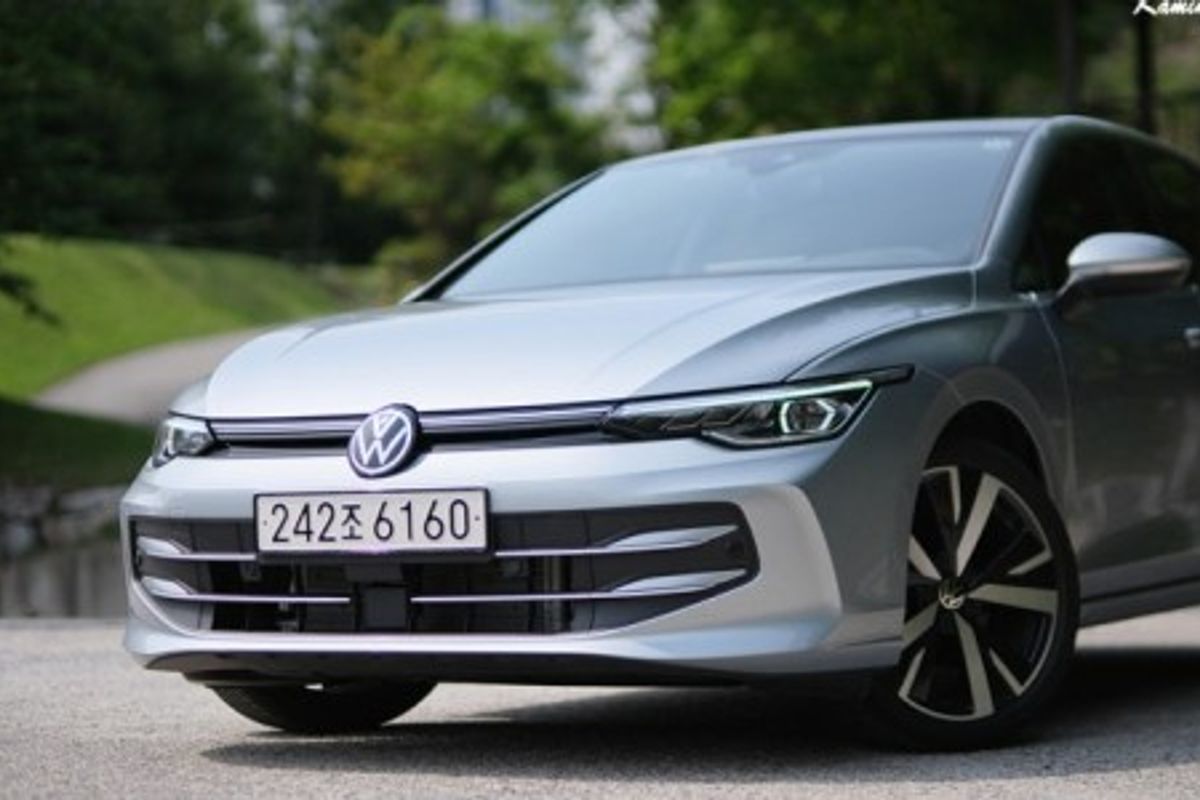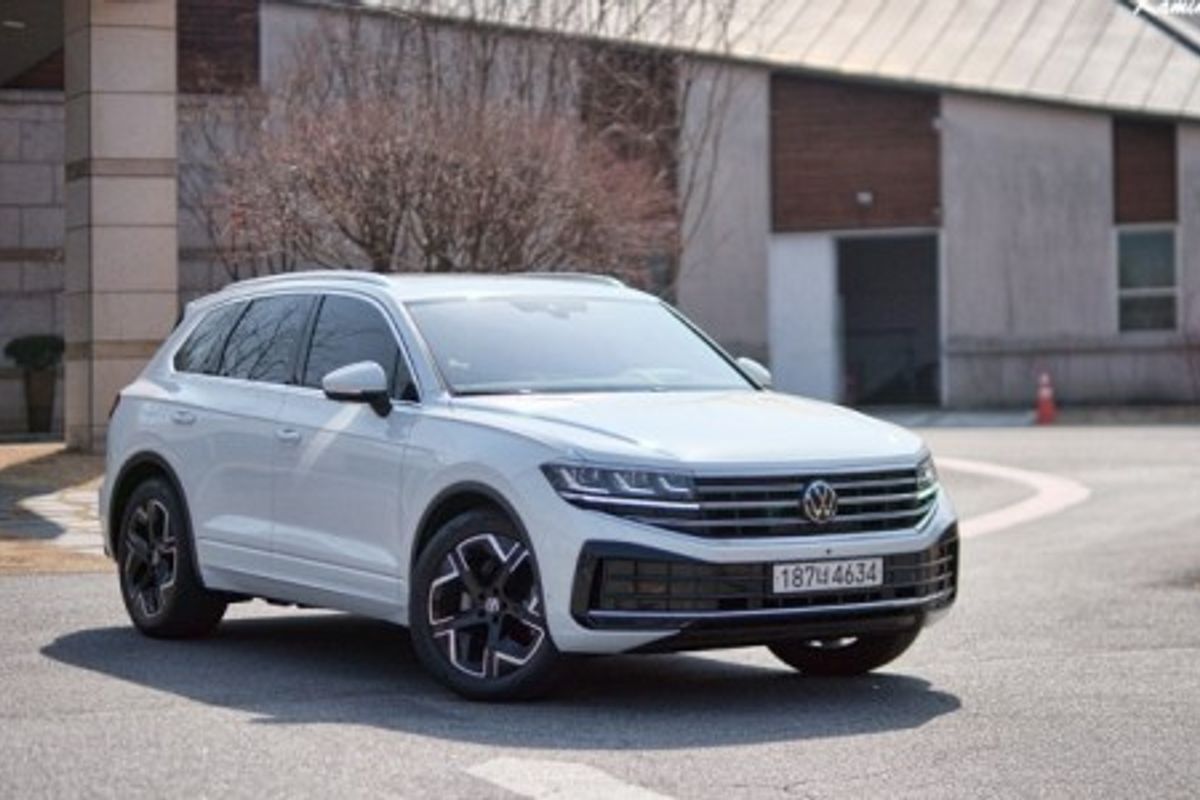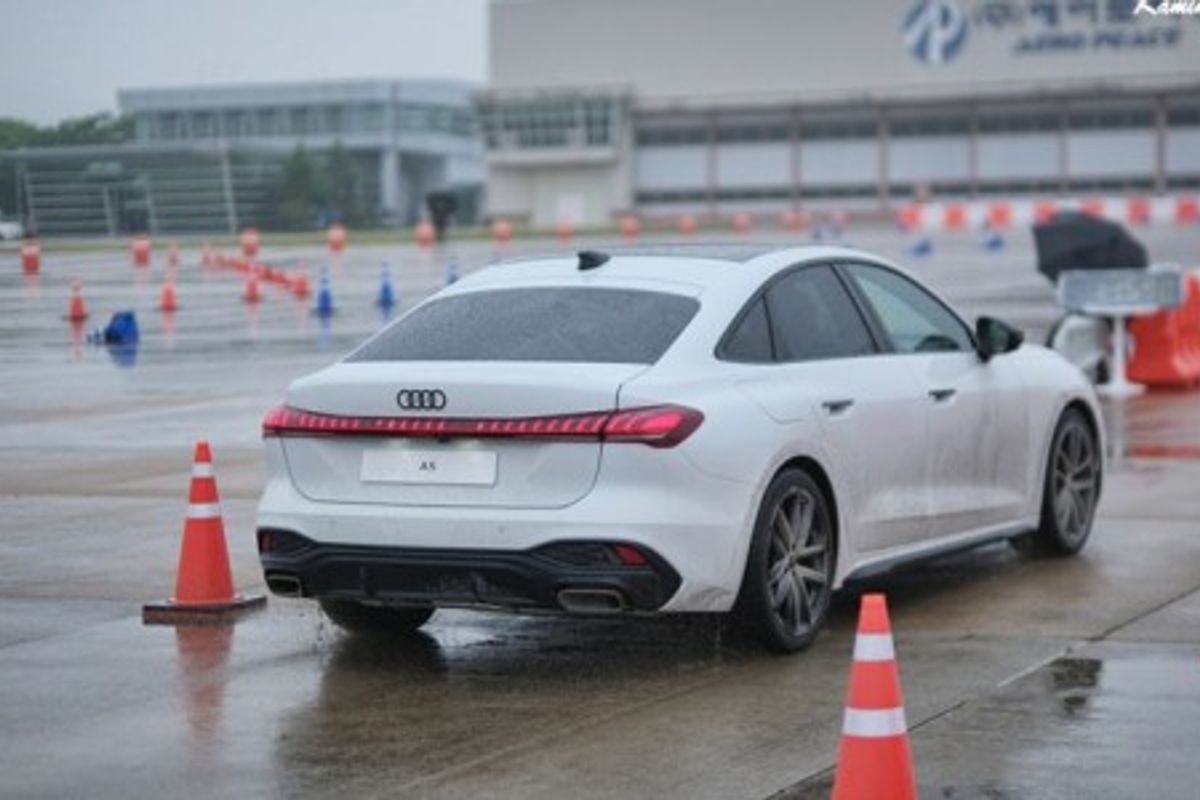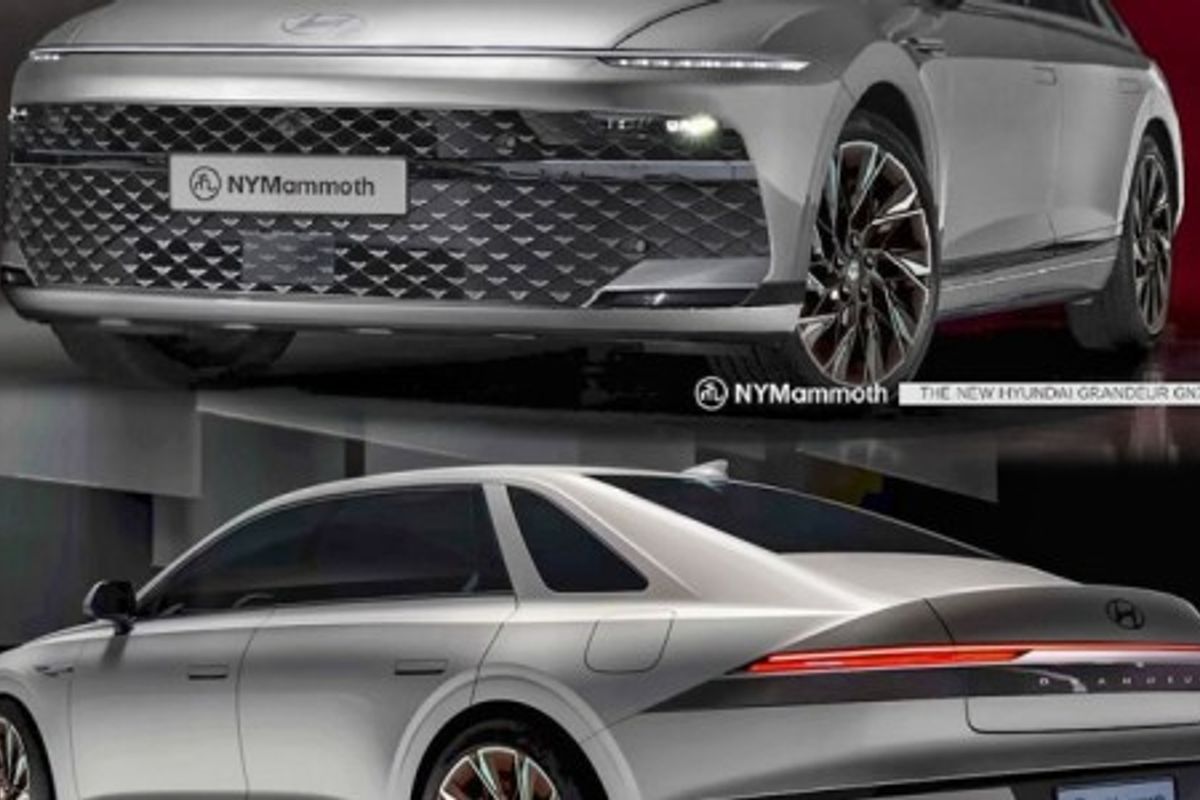The Volkswagen Atlas, a cost-effective large SUV born for the U.S. market in 2017, has finally launched in Korea. Alongside the Tiguan, this globally popular model boasts a larger and more spacious interior compared to its domestic competitor, the Hyundai Palisade...
Some have expressed concerns about the Atlas overlapping with the higher-end Touareg, but in reality, the Touareg competes with luxury large SUVs priced around 100 million KRW (approximately $75,000 USD), while the Atlas targets models like the Palisade, Ford Explorer, and Honda Pilot, which are priced around 60 million KRW (approximately $45,000 USD).
The exterior design leans more towards a North American style, offering a rugged and bulky feel compared to previous European Volkswagen models.
Rather than being a low-cost version of the Touareg, it’s more accurate to describe the Atlas as a larger, premium version of the Tiguan. Looking at the prices, the R-Line single trim for the 7-seater version starts at 67.7 million KRW (approximately $51,000 USD), while the 6-seater version is priced at 68.48 million KRW (approximately $51,500 USD). Existing Volkswagen owners can receive discounts of up to 2 million KRW (approximately $1,500 USD) through trade-ins and an additional 1 million KRW (approximately $750 USD) for a repurchase benefit.
Volkswagen offers several care services, including an installation of a certified dashcam, a welcome kit, a 5-year/150,000 km warranty extension program, and a total care service that waives the deductible up to five times for insurance repairs on accident vehicles. They also provide a parts protection program that covers costs for repairs due to dents or scratches within the first year or 20,000 km, as well as replacements for damaged windshields, side mirrors, and tires.
Although there are currently no official discount promotions from dealers, considering Volkswagen's past policies, the Atlas may also offer some benefits. Therefore, the actual purchase price could be expected to be in the mid-60 million KRW range (approximately $45,000 USD), making the large SUV market in Korea more competitive than ever.
The R-Line package adds a sporty touch, featuring long horizontal LED DRL lamps and an illuminated front logo that will provide a strong presence during nighttime driving.
The 21-inch wheels look great, and the spoke design enhances their size, effectively covering the large fenders.
The Atlas comes in eight colors, starting with the basic Pure White and including Pure Gray, Silver Mist Metallic, Deep Black Pearl, Platinum Gray Metallic, Avocado Green, Mountain Lake Blue, and Aurora Red.
Personally, I believe the red color suits the Atlas R-Line best, but the most popular colors are likely white, black, and gray.
The tail lamps integrate with the front DRL lamps, while the dual exhausts give the rear a sporty look reminiscent of high-performance models.
However, the Atlas is powered by a 2.0-liter inline 4-cylinder turbo TSI engine paired with an 8-speed automatic transmission. With the "4MOTION AWD" system, we might not expect exhilarating performance.
The specifications indicate a maximum output of 273 horsepower and a peak torque of 37.7 kg.m. We will assess the performance further during the upcoming test drive event. However, it's somewhat disappointing for a large SUV to feature a 2.0-liter turbo engine.
The interior matches the price point of around 60 million KRW (approximately $45,000 USD). Since it targets the North American market, it differs somewhat from the atmosphere of German luxury imports.
As a large SUV, the second-row legroom offers ample space. Although there are no photos, the 6-seater version features captain's chairs in the second row, maximizing comfort for rear passengers. The second row also includes heated seats and a three-zone automatic climate control system.
When folding down the second and third-row seats completely, the trunk capacity reaches a class-leading 2,735 liters, and even with the third-row seats in use, you still have 583 liters of space.
For outdoor enthusiasts, especially those who enjoy camping in their vehicles, the Atlas presents an excellent value option.
By examining aspects like design, size, and spaciousness, the Atlas clearly holds advantages over its competitors in the same class. Most importantly, its price competitiveness stands out. While I haven't driven it yet, if the performance meets expectations, other brands might need to watch out.
Stay tuned for the driving impressions. More to come...
The review continues.
